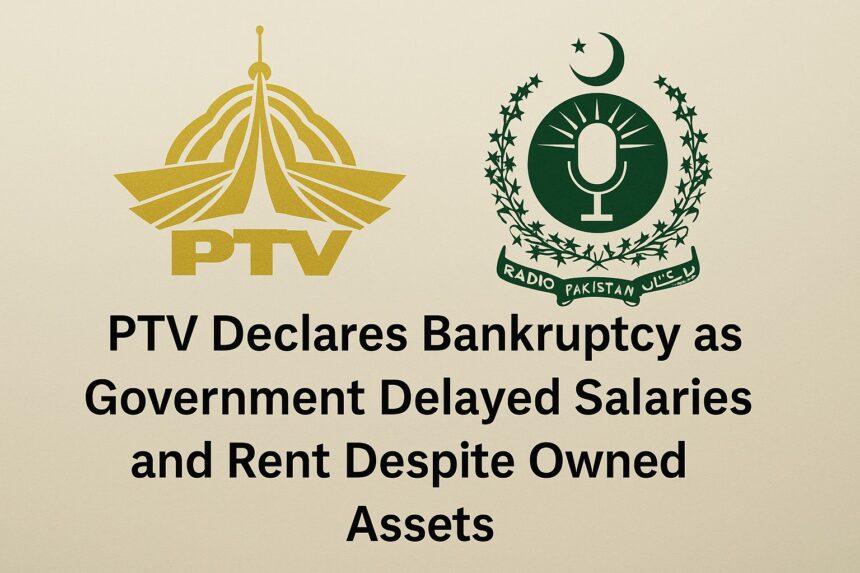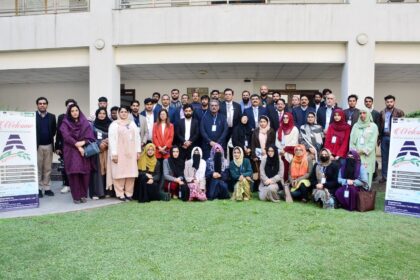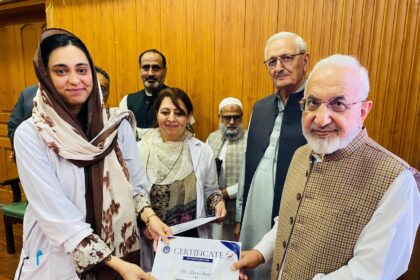PTV Declares Bankruptcy as Government Delayed Salaries and Rent Despite Owned Assets
Nadeem Tanoli
Islamabad: The Senate Standing Committee has issued a stark warning regarding the collapse of Pakistan’s state media institutions, as detailed discussions revealed that both Pakistan Television (PTV) and Radio Pakistan (PBC) are grappling with severe financial distress, mismanagement, and delayed salaries. Lawmakers highlighted how years of government inaction, poor oversight, and contradictory policies have left the country’s national broadcasters unable to function sustainably.
At the heart of PTV’s financial crisis is the federal government’s decision to abolish the Rs. 35 license fee previously collected through electricity bills, which stripped the broadcaster of nearly Rs. 11 billion in annual revenue—its main income source. The loss has forced PTV into a state of effective bankruptcy. With no viable income stream, the broadcaster has requested an emergency bailout of Rs. 3.8 billion from the Ministry of Finance just to survive the current quarter.
The consequences have been dire for PTV employees. Contractual and daily wage staff—particularly those under the Programme Budget Estimates (PBE)—are owed millions in salary arrears. Out of a Rs. 480 million monthly bill, Rs. 143 million remains unpaid, with some employees having gone unpaid for up to three months. Regular employees and pensioners face consistent delays as well. Even security guards remain unpaid, with Rs. 190 million owed for three months of service, of which only Rs. 62 million has been released.
PTV has also slashed medical benefits in a bid to cut costs. Employees have been redirected from private panel hospitals to government facilities such as PIMS and Polyclinic, with only critical cases allowed treatment at institutions like Shifa International or CMH. This shift from credit-based care to government provision is aimed at reducing expenditure, but has further strained staff morale.
Despite these financial hardships, the committee was alarmed to learn that PTV had hired 541 new employees over the past five years, including 176 regular staff and 365 contract workers. Management justified this hiring by citing the urgent need to fill digital media roles due to the existing workforce’s outdated skills. However, the committee chair, Senator Syed Ali Zafar, condemned the recruitment as irresponsible and a sign of gross mismanagement. He also criticized PTV’s long-standing legacy of nepotism, where one-fourth of regular staff were historically hired through a “son/daughter quota,” a practice the current management claims to have ended.
To address the crisis, the Ministry of Information outlined several reforms. These include eliminating unnecessary perks like newspaper subscriptions and luxury hotel stays for directors, enforcing biometric attendance, and terminating staff with fake degrees. Efforts are also underway to make PTV Sports self-sustaining through a proposed agreement with the Pakistan Cricket Board (PCB), revamp PTV World with input from senior journalist Talat Hussain, and potentially outsource PTV Home to the private sector. The committee also discussed reviving defunct state media entities like SRBC/ATV and NAFDEC, pending legal review.
Radio Pakistan (PBC) is facing a similar crisis. Employees have not received full pay raises announced in the last two federal budgets. In 2023, five months of arrears accumulated due to the Finance Division’s failure to release funds. While PBC covered three months using internal savings, two months of the 2023 raise remain unpaid. For the 2024 salary increase, only one month has been paid, with eleven months still pending. Like PTV, PBC’s financial survival now depends entirely on government support.
Senator Syed Waqar Mehdi brought further attention to PBC’s property mismanagement in Karachi. He pointed to a historic building on M.A. Jinnah Road—where Quaid-e-Azam Mohammad Ali Jinnah gave his first address to the nation—which now lies largely vacant and damaged. The Senator urged its immediate restoration and conversion into a national museum. He also revealed misuse of a residential PBC property in Qaidabad, where electricity theft is occurring, yet Radio Pakistan is being billed. Shockingly, while owning its own land, Radio Pakistan’s FM service in Karachi is operating from a rented space on the 12th floor of a building behind the Civic Centre.
The committee concluded with strong calls for both broadcasters and the Ministry of Finance to deliver written reports detailing clear roadmaps to resolve pending salaries, secure state assets, and implement credible financial recovery plans. Senators warned that if left unaddressed, the mismanagement and financial collapse of these institutions would pose a long-term threat to Pakistan’s public media infrastructure and historical legacy.












